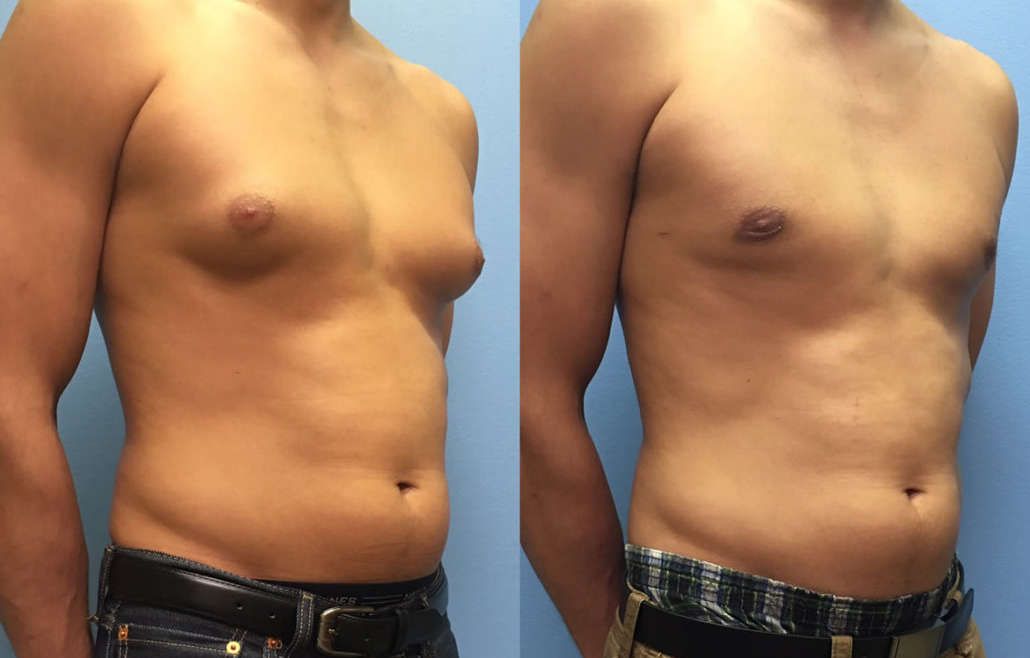It is uncommon for men to have unusually bulging chests, similar to women’s breasts. In most cases, it is simply a result of an abnormal condition known as gynecomastia. It can become a cause for shame and embarrassment quite often, giving men an unmanly look. In such cases, one may opt for gynecomastia surgery to get rid of the excess tissue. The surgery helps to reduce male breasts to the normal size, completely remedying the problem. Here is all you need to know about this surgery:
What exactly is gynecomastia?
Gynecomastia is a medical condition that causes male breasts to enlarge. Most of the individuals who suffer from this condition are either adolescents or older men. Statistics show that gynecomastia exists in about 60% to 90% of all children, 50% to 60% adolescents, and 70% in men within the age group of 50 to 69 years. In addition, the condition may cause the breasts to look saggy or bulging.
What causes gynecomastia?
Gynecomastia may occur due to several reasons, over which one may or may not have any control. These include:
-
Physiological gynecomastia
Also known as primary gynecomastia, this condition typically affects boys aged between 15 and 17. Excessive secretion of Estrogen can result in a hormonal imbalance in the body. Also known as the female hormone, estrogen is present in men in small quantities. However, it can surge during puberty. This results in the development of breasts in boys. While the breasts usually shrink back in the future, in some cases, they remain enlarged.
-
Obesity
Gynecomastia from obesity is also known as pseudo-gynecomastia, in the case of obese males. Excess fat can build up in the chest area. Even if there is no excess breast tissue, the fat will give the chest a bulging look.
-
Medications and substances
Consuming excessive amounts of alcohol or certain drugs, such as opium and marijuana, can cause gynecomastia. The condition may also result from anabolic steroids, anti-anxiety drugs, opioids, anti-ulcer drugs, or other medications. Gynecomastia is often common among bodybuilders who use steroids excessively.
How to treat gynecomastia?
The treatment method may vary depending on the type of gynecomastia that you might have developed. However, it does involve surgery in most cases. The surgical process may involve:
- The removal of excess fat
- The removal of breast tissue
- The removal of breast tissue as well as excess fat
If the gynecomastia is mainly a result of the accumulation of fat, then the surgeons would make a small incision around the areola. They would insert a small tube with a vacuum pump to draw out the fat through this incision. If there is any glandular tissue that requires removal, they would then exercise it through the incision. Ideally, one should consult an expert for advice on which treatment method would be the most suitable.
Also Read: Tips to Eat More Green Diet
How long does it take to recover from gynecomastia surgery?
The recovery time would depend on the surgical procedure. As mentioned earlier, the surgery may involve removing excess fat, glandular tissue, or both. If it only requires liposuction, then you may expect to return to your regular lifestyle and work in about seven to ten days. However, if the surgeons have to remove glandular tissue, you may need two to four weeks to recover. Nevertheless, with adequate care from the right professionals, you should be able to recover rather fast.
How safe is gynecomastia surgery?
Safety concerns are quite common among individuals considering surgeries. After all, surgeries do tend to involve risks in many cases. Gynecomastia surgery is usually safe, and the risk of complications is quite low. However, there are still chances of bruising, scarring, numbness of the nipples and the loss of nipple skin, loose breast skin, inverted nipples, etc.
The probability of developing complications depends largely on the skills and the techniques of the surgeon. This is why it is crucial to choose the right surgeon for gynecomastia surgery.
Should you consider undergoing gynecomastia surgery?
While gynecomastia usually occurs in both breasts, some men do suffer from unilateral gynecomastia too. Upon self-examining the breasts, you notice a firm and tender disc-like mound, and the tissue lies centrally in the nipple-areolar complex; you have developed gynecomastia. However, it is always wise to have it examined by a doctor before drawing any conclusions.
The lump could also potentially be a sign of breast cancer. However, in this case, it would be hard instead of tender. Doctors carefully examine the condition at the leading hospitals to ascertain that it is gynecomastia and not breast cancer before proceeding with the surgery.
Where should you undergo gynecomastia surgery?
It would be logical to have the gynecomastia surgery done at one of the leading hospitals by a reputed surgeon. The best hospital chains in India, like Max Healthcare, offer excellent facilities for the surgery. Quality care is crucial for a successful surgery and a quick recovery.
















